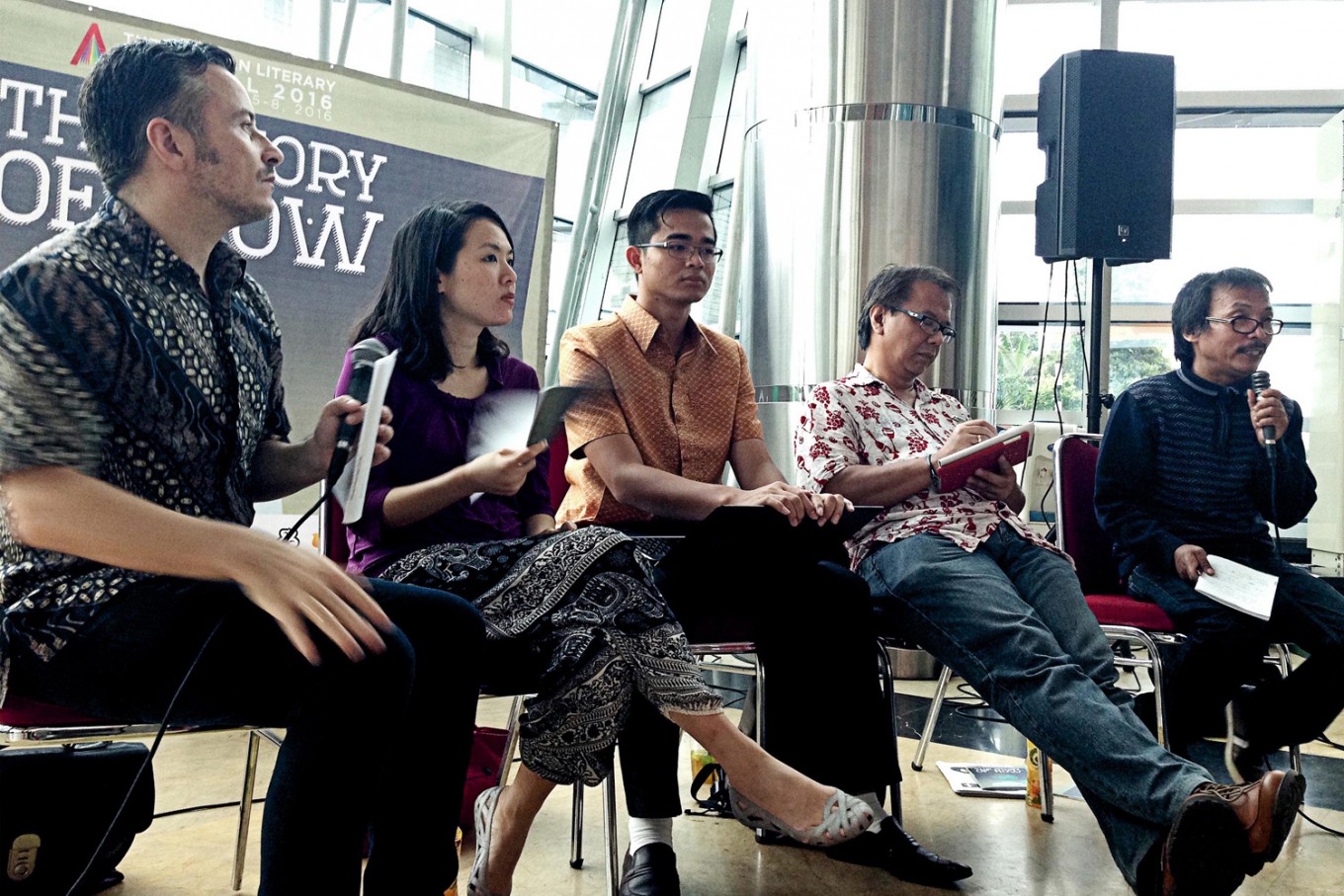Popular Reads
Top Results
Can't find what you're looking for?
View all search resultsPopular Reads
Top Results
Can't find what you're looking for?
View all search resultsSocieties with poor literacy rate prone to censorship
“You can outsmart censorship with learning English and expanding your reading materials.”
Change text size
Gift Premium Articles
to Anyone
 Against censorship -- (From left to right) Moderator Marco Stahlhut, Singaporean literary writer Stephanie Ye, Cambodian writer Oudom Heng, The Jakarta Post editor-in-chief Endy Bayuni and Indonesian poet and essayist Ahda Imran talk in a discussion entitled "Being Shut Down" at the 2016 ASEAN Literary Festival in Jakarta, Sunday. (thejakartapost.com/Viriya Paramita Singgih)
Against censorship -- (From left to right) Moderator Marco Stahlhut, Singaporean literary writer Stephanie Ye, Cambodian writer Oudom Heng, The Jakarta Post editor-in-chief Endy Bayuni and Indonesian poet and essayist Ahda Imran talk in a discussion entitled "Being Shut Down" at the 2016 ASEAN Literary Festival in Jakarta, Sunday. (thejakartapost.com/Viriya Paramita Singgih)
“You can outsmart censorship with learning English and expanding your reading materials.”
So said a Singaporean literary writer who has encountered many situations showing that censorship is enabled by a poor literacy rate.
“We’ve seen that the Singaporean government is very fond of censorship and they use the idea of censorship as a way to shape society,” Stephanie Ye said in a discussion entitled “Being Shut Down” at the 2016 ASEAN Literary Festival in Jakarta on Sunday.
“One reason why censorship doesn’t really work there is because the country’s population is extremely literate. Most people can read in English, so it’s so easy to access foreign media [to find alternative reading material]. You can’t censor every single thing that is in English out there,” she went on.
Censorship in Singapore is carried out by the Media Development Authority (MDA), which requires all media to have the relevant licenses to operate.
However, Stephanie said, the emergence of Internet had encouraged people to establish their own independent websites. Hence, the Singaporean government had started to compromise, conceding that trying to censor cyberspace was a losing battle, she added.
Meanwhile, a recent study conducted by John Miller, president of Central Connecticut State University in New Britain, US, puts Indonesia in the second-lowest rank of 61 measurable countries for its “literate behavior characteristics”, which includes numbers of libraries and newspapers to years of schooling and computer availability.
Indonesia sits in 60th place after Thailand and before Botswana. The Scandinavian countries are the champions of the study with Finland in first place, followed by Norway, Iceland, Denmark and Sweden rounding out the top five.
Poet and essayist Ahda Imran said that the low literacy rate gave Indonesians a tendency to forbid things that they saw as different. That is why it is easier for ethnic and religious majorities to impose censorship within society, he added.
Ahda is the scriptwriter of monologue theater performance about national hero Tan Malaka, which was initially scheduled to run twice over two days at the Indonesian Francais Indonesia (IFI), the French cultural center in Bandung, West Java, in March. However, the first day of the event was cancelled due to pressure from a hard-line group that accused the show of spreading communist ideology.
“It proves that democracy in Indonesia is still only implemented at the managerial level, not at the practical level,” Ahda said. (vps/ebf)








